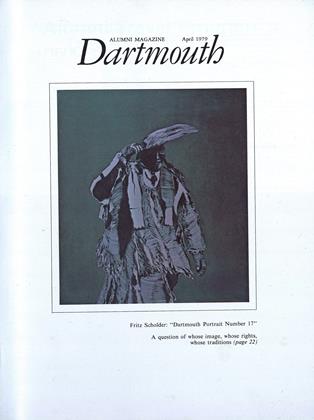Imagine Raymond Chandler, the author of The Exorcist, and Sophocles getting together for a night on the town. Sometime after the third drink they decide to collaborate on a bestseller, writing in that very night through an alcoholic haze. You now have some idea of the flavor of Falling Angel.
It begins as a detective story: private investigator Harry Angel is hired to find out what happened to pre-World War II singing idol Johnny Favorite, who has disappeared from the hospital bed where he has been vegetating for the past 30 years. As Angel tries to track down Johnny Favorite, he is led to a voodoo cult, a fortune teller who dabbles in witchcraft, a stunningly attractive herbalist who turns out to be Favorite's daughter and Angel's bed partner, and finally to a Black Mass celebrated in a New York subway.
Gradually, the detective novel becomes a novel of the occult as Angel is forced to acknowledge that his antagonist is none other than the devil himself. This revelation, shocking enough, is given still another twist when the detective realizes that the key to the case is the mystery of his own identity. When Angel learns that he, like Oedipus, has been pursuing himself, the detective-novel-turned-occult tries one metamorphosis too many: detective-novel- turned-occult-turned-Greek-drama doesn't work. In fact, Hjorstberg doesn't even stop there, since Harry's self-recognition entails not only the realization that he has committed incest, but also that he has sold his soul to the devil - enter Oedipus and Doctor Faustus. The book's real mystery is how Hjorstberg can take such heady stuff and finally do so little with it.
Falling Angel, with its literary allusiveness and allegorical names (Harry Angel, Louis Cyphre), pretends that it has a serious message to convey. It doesn't. Harry Angel's self- recognition does not lead him, or us, to self- knowledge. The Sophoclean and Faustian elements seem merely pretentious in a plot that so clearly exists to titillate, to shock and absorb - but not to embody truth.
This is not to say that the book is not worth reading. If you are looking for a fast-paced story tolerably well told, full of turns and counter-turns, violence and excitement, FallingAngel is for you. If you are looking for self- knowledge, wisdom, or enlightenment, go back to Sophocles.
FALLING ANGELBy William Hjortsberg '62Harcourt Brace, 1978. 243 pp. $8.95
Nancy Hayles teaches Shakespeare and sciencefiction at Dartmouth. She is currently at workon a book examining how science has affectedthe form of modern fiction.
 View Full Issue
View Full Issue
More From This Issue
-
 Feature
FeatureThere and Back Again
April 1979 By John S. Major -
 Feature
FeaturePilgrims' Progress
April 1979 By L. Bruce Anderson, Edward Bradley -
 Feature
FeatureA winter of discontent, a day of perceiving differences
April 1979 By Shelby Grantham -
 Article
ArticleJust Out of Reach
April 1979 By M.B.R. -
 Article
ArticleBooks in Process
April 1979 -
 Article
ArticleMoney Man
April 1979 By M.B.R.
Books
-
 Books
BooksTHE HISTORY OF THE ORDER OF THE BATH AND ITS INSIGNIA.
MARCH 1973 By CARL BRIDENBAUGH '25 -
 Books
BooksPRODUCT POLICY AND STRATEGY.
JULY 1972 By CHARLES A. DAILEY -
 Books
BooksThe Good Life
SEPTEMBER 1983 By Edward M. Holmes '33 -
 Books
BooksSOME FACES IN THE CROWD.
June 1953 By JOHN FINCH -
 Books
BooksFurther Mention
JUNE 1971 By JOHN HURD 21 -
 Books
BooksMILLIONS OF BOOKS, THE STORY OF YOUR LIBRARY
July 1941 By Nathaniel L. Goodrich

